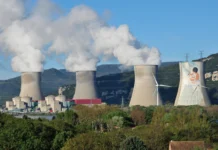
(photo credit: Andrew Davidson)
The first prosecutions have been brought in relation to a spill in Russia’s Arctic region in May, which involved the release of over 20,000 tonnes of diesel into rivers and subsoil near the Siberian city of Norilisk.
The former mayor of the Arctic city of Norilsk, 55-year-old Rinat Akhmetchin, was sentenced on 19 October to six months of “correctional work” and fined 15 percent of his salary after being found guilty of negligence, according to details reported in the publication Radio Free Europe. His guilt was founded on his having failed to coordinate and organise emergency measures to contain and control fallout from the spill. Akhmetchin had been mayor of the region since September 2017, but resigned in July.
Greenpeace has compared the incident to the 1989 Exxon Valdez oil spill in Alaska. Vladimir Putin declared a state of emergency over the leak and also expressed fury about it during a June television address.
Norilsk Nickel (Nornickel), the world’s leading nickel and palladium producer, is responsible for the spill. The leak was reported as having been caused when the pillars supporting a storage tank sank as a result of thawing permafrost soil. Sagging ground also helped set the scene for the incident. Arrests were also made of four environmental managers, who were being held on suspicion of having violated environmental rules, by having continued to use a fuel tank that was unsafe and in need of repair.
In October, Reuters reported that Nornickel had estimated the environmental cost to be around $273 million, far below the assessment made by the country’s environment watchdog. The latter had previously filed a lawsuit against a power business owned by Nornickel to claim $1.88 billion for the damage. The subsidiary has reiterated its full commitment to do everything that is necessary to completely eliminate all of the event’s “negative consequences,” but suggested the environmental watchdog had not taken account of its having “acted promptly and in good faith from the very first minute of the incident”.







